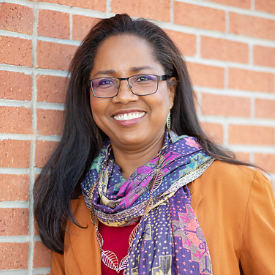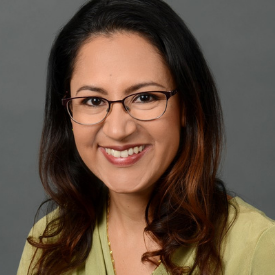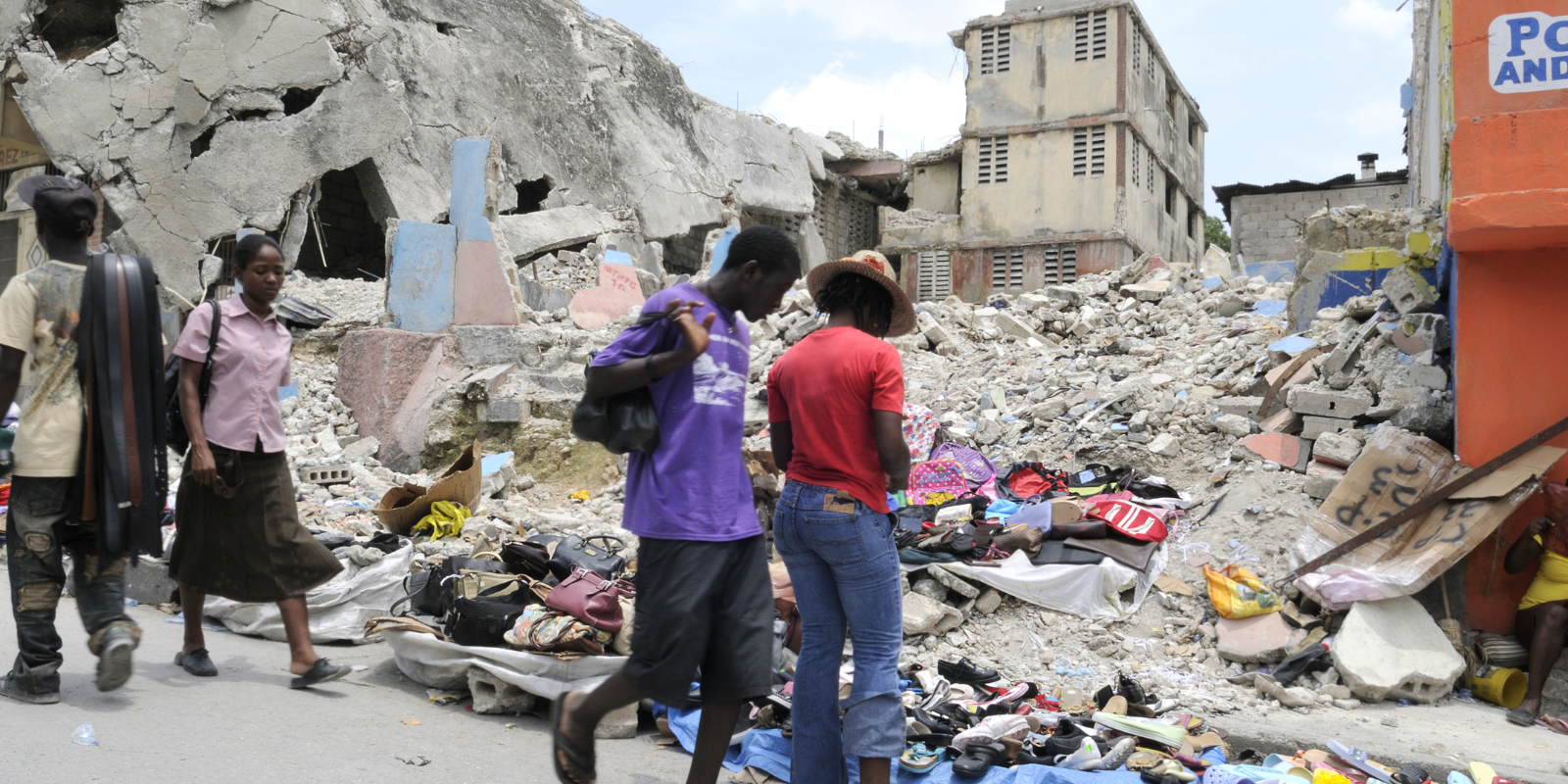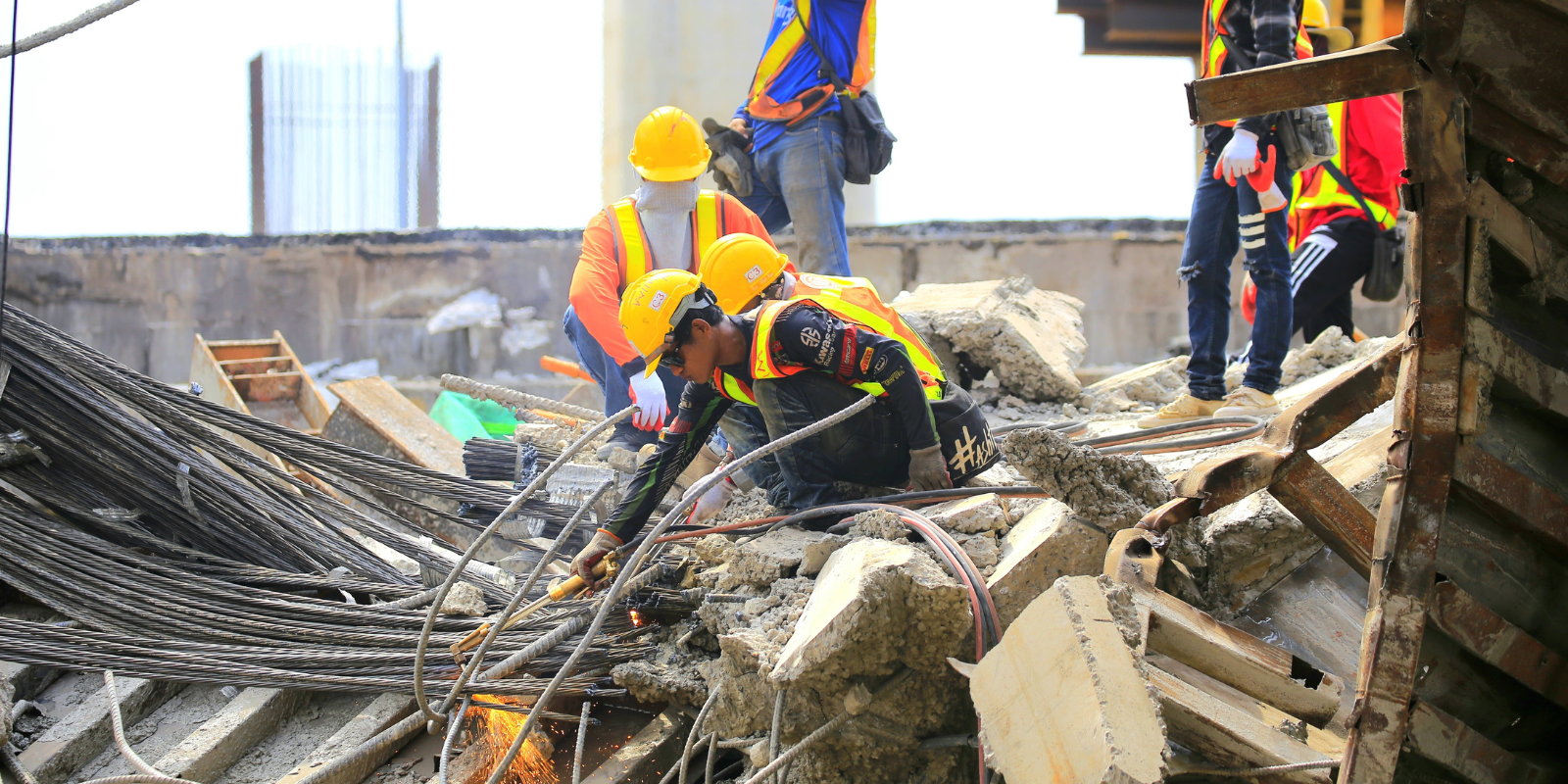Celebrating exceptional women on the University of Colorado Anschutz Medical Campus? No problem.
The women on this campus teach tomorrow’s healthcare experts, move science forward with breakthrough discoveries and care for patients during their most challenging times. They are medical pioneers, wives, daughters, sisters, friends, mothers, role models and heroes.
Throughout September, in recognition of the American Medical Association’s (AMA) Women in Medicine Month, we are recognizing a few of the extraordinary women who work in all aspects of the medical field on our campus. They share the significance of being a woman in medicine and the challenges of fulfilling their numerous roles during a worldwide pandemic.
September also marks National Hispanic Heritage Month, and this week’s featured women exemplify the important contributions of Latinas in the healthcare profession, from research and mentorship to clinical practice for underserved communities.
Rosario Medina, PhD: Advocating for Hispanic underserved populations
Rosario Medina, PhD, FNP-BC, ACNP, CNS, FAANP, is a clinical professor and the associate dean of clinical and community affairs in the College of Nursing. She holds a secondary appointment in medicine in the Department of Family Medicine.
In her role as associate dean, Medina oversees multiple nurse-led faculty practices serving Denver metro and rural Colorado areas. These include: five midwifery clinics; a campus health primary clinic serving students, staff and faculty; an integrative primary care clinic serving a mixed population in the suburbs; and an integrative primary care clinic caring for the underserved populations of Denver.
Medina has 28 years of academic experience as a teaching professor and administrator. Her 39 years of nursing experience – 23 of which have been as an active family nurse practitioner – has focused on the management and care of underserved populations with chronic disease and comorbidities in New York City, Florida and Colorado.
Medina’s research trajectory has made her an expert in understanding health beliefs and values of Hispanic underserved populations and knowledgeable in community-based research aimed at changing practice. Her research findings have supported the alteration of practice in meeting the healthcare needs of underrepresented Hispanics – primarily by infusing practice with culturally competent community outreach interventions.
What does being a ‘Woman in Medicine’ mean to you?
Being a woman in medicine means having the voice to represent those left out of research findings or the inability to have a seat at the decision-making table. This has been even more resounding as a woman of color. I feel the immense responsibility of representing many who have never had the opportunity to be seen or heard.
How has the COVID-19 pandemic affected you personally?
COVID has forced me to reflect once again on what is really important – human caring and dignity of life. I made sure to provide life lines to family and friends with frequent check points.
I planned for safe connections, following guidelines but enhancing mental wellness, by seeing and hearing others. My resilience grew; I felt the need to share hope with friends and strangers.
How has it affected your career in medicine?
On the first call, my immediate response was to prepare for action, and I had a desire to be on the front lines of discovery and care. Although COVID-19 has been a wearisome and ever-changing phenomenon, I have seen it as I have seen disease in the 38 years of my practice. I lived through HIV, higher levels of tuberculosis and sexually transmitted infections.
Science is ever-changing and never exact. For those of us on the front lines, it has meant being on the forefront of the latest findings and having the agility to change the guidelines on a minute-to-minute basis.
Jennyfer Mitchell, PhD: Inspiring Latinas to pursue careers in healthcare
Jennyfer Mitchell, PhD, is a postdoctoral fellow in the Department of Craniofacial Biology in the School of Dental Medicine.
What does being a ‘Woman in Medicine’ mean to you?
It means that many obstacles were overcome. It means hard work, tenacity and perseverance to break old misconceptions and stereotypes, but it also means inspiration.
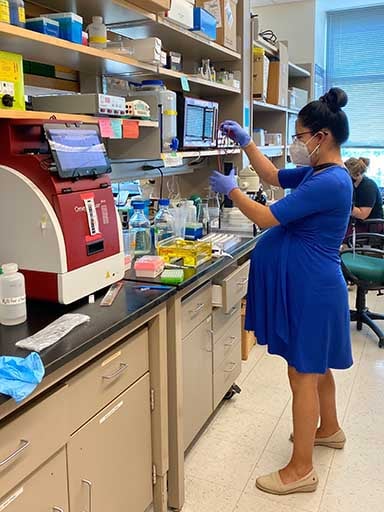
Mitchell was still doing bench work at 38 weeks pregnant. Photo credit: Brenna Denison |
Every day that I define myself as a woman in medicine gives me great motivation to keep pursuing higher standards and achieve more for my career. Because I am also Latina, I hope that this inspiration also reaches other Latinas who are in an early stage of their careers. This is the reason why every year I coach high school and undergraduate students seeking biomedical careers under the University of Denver Health Professions Highway program as well as train graduate students at the CU Anschutz Medical Campus.
How has the COVID-19 pandemic affected you personally?
This pandemic has changed my life for both good and bad reasons. During the 2020 campus shutdown, I was able to take care of medical treatments that allowed me to have my first and only child without being a detriment to my career more than what the shutdown already was.
However, it was extremely uncomfortable to carry a pregnancy wearing N95 masks every day to avoid acquiring the virus. Now that the pandemic continues, and I'm getting ready to come back to work, new challenges have emerged. It has been difficult to find childcare and avoid exposure to the new variants to my infant. This situation gets complicated by all the scheduling and maximum capacity restrictions. These measurements are necessary to control the spread of this virus, but it is hard to advance quickly in some experiments and projects.
However, there is also more time to work from home, which allows me to take care of my newborn and still advance my career.
How has it affected your career in medicine?
The COVID-19 pandemic has caused a slowdown in my research projects. Although I recently published an important discovery regarding a gene mutation involved in human frontonasal dysplasia, this could have been published earlier and at this point I could be seeing the publication of the second one, following up on our understanding of this craniofacial deformity and its genetic basis. As a biomedical researcher, I believe the sooner we can address the basis of a disorder in a model organism, the faster we can get to the next steps that involve building the link to the human cases.

